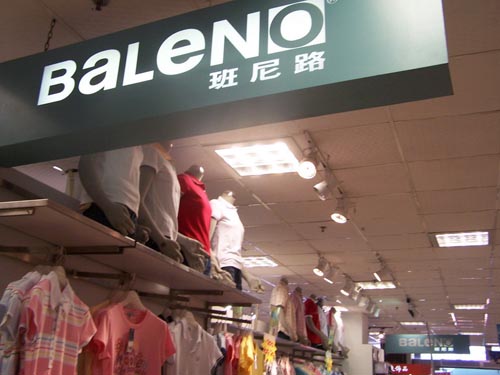Today, Benny Road has become a casual wear brand renowned throughout Asia, including mainland China, Hong Kong, Taiwan, Singapore, and the Middle East. The company operates around 5,000 chain stores globally, with over 2,000 of those located in China. Benny Road is now among the largest and fastest-growing names in the casual wear sector. Given its strong development trajectory, why is it venturing into the magnesium market book market? Meanwhile, other Hong Kong-based casual wear brands like Giordano and U-Way, while not quite as prominent as Baleno, have long showcased their capabilities in the Hong Kong stock market. Can an international company aiming for global expansion rely on the capital markets to fuel further growth? Is there any indication that Baleno might be considering this path? Benny Road Still Relies on Support It has been ten years since Tak Wing Jia Group, a publicly traded company in Hong Kong, became the majority shareholder of Benny Road. According to the group's annual report released earlier this year, as of March 31, 2006, Tak Wing Jia had fully acquired Benny Road. The total revenue increased by 6% to HK$7,749 million, with a net profit attributable to shareholders amounting to HK$480 million, marking a 4% rise from the previous year. Further analysis reveals that the main drivers of the group's growth include its textile, retail and distribution, and garment manufacturing businesses. Notably, the retail segment saw sales reach HK$3,444 million, an increase of 9%, representing 44% of the group's overall revenue. While the retail business still reported losses in the financial statements, these losses were primarily due to substantial expenditures related to store expansion in the previous year. Additionally, the report highlights that the Mainland remains a key focus for retail development, with stores present in over 260 cities. Observing Tak Wing Group's annual report, it becomes clear that Baleno holds a pivotal role within the group. In 1996, Tak Wing Jia Group, a publicly traded entity in Hong Kong, purchased Benny Road and its trademark (acquiring a 54% stake in the Baleno Group), thus entering the retail and distribution sector. Following the acquisition, Baleno rebranded itself across the Mainland, Hong Kong, and Taiwan. Benny Road's trademark swiftly gained traction in major urban centers. Since 1999, Tak Wing Jia has also ventured into the clothing business on the Chinese mainland, establishing a comprehensive industry structure that includes the production and sale of knitwear, cotton yarns, garments, and garment retail distribution. Currently, 13% of the knitwear produced by Tak Wing Jia is sold to the group's joint garment business, while 80% of the fabrics used in the associated clothing business come from the knitwear division. Approximately 40% of the garments sold by the Baleno Group are supplied by Tak Wing Jia's associated garment business. This triad of businesses supports each other, with the distribution and retail arm of Baleno at its core. As the company continues to expand both domestically and internationally, questions arise about its future strategies. Will Baleno leverage the capital markets to sustain its growth? And what role will the magnesium market play in its broader business plans? These remain open questions as the brand continues to evolve. Prev 1 2 Next Full Story Office Uniform For Ladies,Formal Uniform For Ladies,Corporate Uniform For Ladies,Womens Work Uniforms Ningbo Ysang Garment CO.,LTD , https://www.nilesone.com
Today, Benny Road has emerged as a popular casual wear brand across Asia, reaching markets like mainland China, Hong Kong, Taiwan, Singapore, and even parts of the Middle East. With a global presence, the company runs approximately 5,000 chain stores worldwide, with more than 2,000 located in China alone. As one of the fastest-growing players in the casual wear industry, Benny Road has carved out a significant niche for itself. But how does a company with such rapid growth find itself involved in the magnesium market book market?